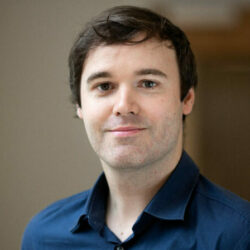Evolution of the Radiology Profession due to Artificial Intelligence
Event: Conference
Location: Zoom
27 January 2022, 18.00-20.00 (Bucharest time)
Ruben PAUWELS
Associate Professor, Aarhus Institute of Advanced Studies, Denmark
Join Zoom Meeting
https://us02web.zoom.us/j/82820967469?pwd=RVV0NDJoTXBoMEN0YktqeDd4SFE0QT09
Meeting ID: 828 2096 7469
Passcode: 815904

Ruben Pauwels
In this talk, a particular example of ‘Knowledge in a Digital Era’ will be discussed. Digitization of medical imaging started well over 30 years ago, and is still on-going. Within this time-span, certain innovations did not require a significant adaptation in radiological know-how (e.g. photostimulable phosphor plate), whereas other technologies required significant adaptations of training curricula and/or additional post-graduate certification (e.g. CT, MRI). Currently, artificial intelligence (AI) is revolutionizing the radiological landscape. Following the development of highly performant algorithms for deep learning, along with the ever-increasing computational power available to us, the use of AI for diagnostics as well as image processing has been explored. While the development of clinical AI tools is very much a work in progress, the hype around AI has already raised several questions regarding its impact on the radiological profession. Although it is generally believed that radiologists will not become obsolete any time soon, and that the ultimate responsibility for a patient’s diagnosis and treatment will remain in human hands, several questions can be raised regarding the effect of AI on the required knowledge and competencies of future radiologists. Most of the current perspectives regarding the use of AI in radiology are somewhat simplified and static, and focus mainly on the ways in which AI can enhance the diagnostic workflow (‘augmented radiology’). The reality, however, may be much more complex and dynamic, and may require a significant alteration to the training requirements of radiologists or, perhaps, the inception of an entirely new profession.
This event is organized within the framework of the NetIAS lectures series (Network of European Institutes of Advanced Study) hosted by NEC.